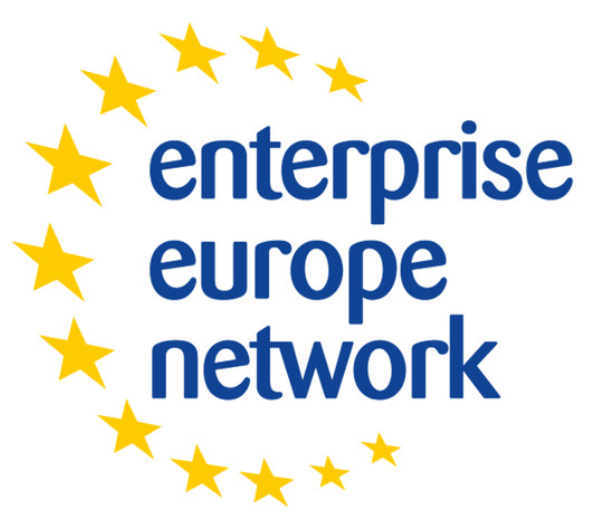
Enterprise Europe Network - a global network support innovation growth.
Today we bring you an interview with an OPeraTIC partner highlighting the benefits of the Enterprise Europe Network (EEN) for the photonics and AI sectors.
Meet Sabine Hafner-Zimmermann, from Steinbeis Europa Zentrum, and learn from her experience with this growing network and its workshop supporting key deep tech sectors, including machine-learning.
I understand you recently took part in the sector meeting of the Electronics Sector Group of the Enterprise Europe Network (EEN) Can you tell us a bit about the event and why you were meeting?
Since a while back, I am part of the Electronics Sector Group (SG) of the Enterprise Europe Network. The Sector Group usually meets twice a year in person. The latest meeting took place in Vilnius, Lithuania. Usually, the local EEN SG partner organises an internal meeting as well as meetings with external organisations that are interested in the SG’s activities and that want to present themselves and connect to an international audience.
I myself and other Steinbeis colleagues participate in these SG meetings because we experience that personal contacts we make during these meetings are vital for our daily work and facilitate identifying relevant companies and research organisations for our clients.
What were the main outcomes from the meeting?
The meeting in Vilnius was organised by the Lituanian Innovation Centre (LIC) and focussed on opto-electronics, especially laser technologies and research as well as – reinforced by the close contacts between Lithuania and Ukraine – on supporting Ukrainian companies to connect to European organisations.
In terms of outcomes, the SG members got a very intense overview of the Lithuanian Laser Technologies ecosystem and we will use this know-how to enable our customers and partners in the field to identify suitable collaboration partners.
Who is involved in the group?
In the Vilnius meeting, 18 SG members participated physically. The SG has 43 members from all over Europe and is manged by Zenit, a long-lasting partner of the EEN in North-Rhine Westphalia. Participation in the SG is usually very active and partners meet frequently for joint events, brokerage and matchmaking activities.
What is the purpose of the group?
All members of the SG are in their host organisations responsible for activities to support their public and private clients from the electronics sector in anything that is related to innovation support, research & technology development, funding and partnering. Frequently, we bring clients to SG meeting, international fairs, brokerage and matchmaking events. This in turn supports them to innovate and scale-up their businesses. And as said, it’s always easier to connect one client to another if you know in person the EEN partner who could have the right contacts at hand your client is looking for.
Can you tell us a bit more about the Enterprise Europe Network?
The EEN is the world’s largest technology transfer network. It has more than 600 partners in over 60 countries in Europe and worldwide. About 3,000 consultants support companies of all sizes and sectors, public and private organisations in their innovation activities by way of targeted services.
How does this fit to Steinbeis Europa Zentrum?
Steinbeis Europa Zentrum has been a partner of EEN since the very beginning and we are conviced that the services we can offer via the EEN and its worldwide network does benefit both our regional clients as well as the EU economy and society as a whole.
Why is this of particular interest to you?
Being part of the EEN and more specifically the SG Electronics enables me to pass on requests from my customers quickly and directly to people that I know work in the same field, and one of them will most likely be able to forward my request to a suitable cooperation partner in his or her network. That in my view is a huge help for my work and very practically shows the benefits of true European collaboration for the benefit of companies and people.
How concretely could the readers of our newsletter benefit from the EEN and maybe even from your meeting in Vilnius?
Lithuania is a world leader in laser manufacturing and has a lively Laser/Photonics/Opto-Electronic ecosystem which we were able to experience very practically during our visit to Vilnius. We for example visited the production site of Diodela (Home – Diodela – Photonics Solutions for Industry) which is a spin-off from the Center for Physical Sciences and Technology (FTMC). Diodela successfully cooperates with both national and international companies, supported by the EEN for e.g. research & development cooperation and market access in Germany, France and further European countries. Furthermore, we visited the Laser and Engineering Technologies Cluster LITEK (Laser and Engineering Technologies cluster LITEK™) where companies and research organisations cooperate on RTDI projects, e.g. companies Akoneer (Titulinis | AKONEER) and Ekspla (Ekspla). So if you are interested in research & development cooperations with either companies or specialised research organisations in Lithuania, you should have a closer look at the Lithuanian ecosystem at Lithuanian laser association – Lithuanian laser association (ltoptics.org)

